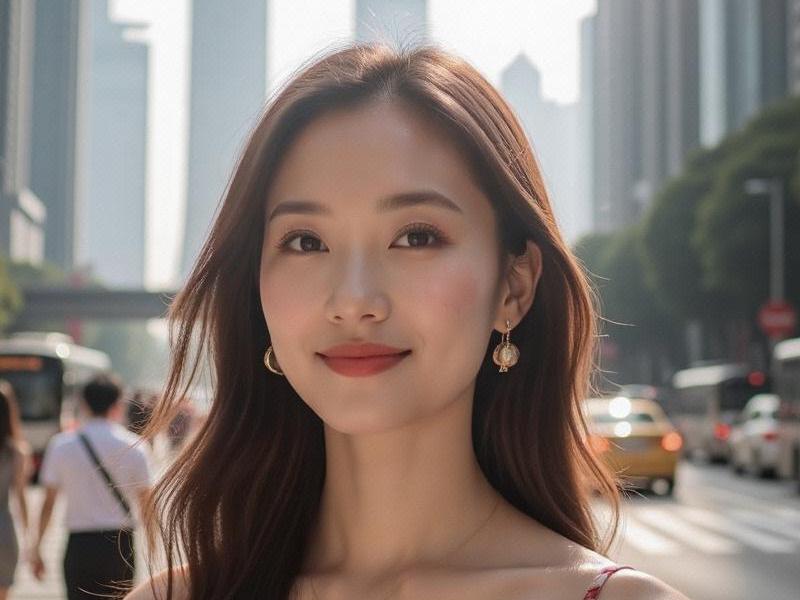This feature explores how Shanghai's women are leading a beauty revolution in China, blending Eastern aesthetics with global influences while challenging traditional norms through innovative fashion statements and entrepreneurial ventures in the beauty industry.

In the neon-lit streets of Shanghai's French Concession, a quiet revolution is unfolding—one lipstick, one hairstyle, one bold fashion choice at a time. The women of China's most cosmopolitan city are rewriting the rulebook of Chinese beauty, creating a distinctive style that's being emulated across Asia.
Shanghai has long been China's fashion capital, but what's emerging now goes beyond seasonal trends. "Shanghai girls don't follow beauty rules—they make them," declares Vivian Wang, creative director of local cosmetics brand Florasis. "Our customers want products that celebrate Chinese features rather than westernize them." This sentiment echoes through the city's beauty scene, where traditional elements like hanfu-inspired makeup and guochao (national trend) aesthetics coexist with edgy, contemporary styles.
上海贵族宝贝自荐419 The statistics tell a compelling story. Shanghai's beauty market grew 28% in 2024 to reach $5.3 billion, with local brands capturing 47% market share—up from just 15% in 2015. The rise of homegrown beauty empires like Pechoin and Herborist parallels the city's cultural confidence. Meanwhile, Nanjing Road's "Beauty Mile" now hosts over 300 cosmetic stores, including flagship locations for every major international brand from Chanel to Perfect Diary.
What makes Shanghai's beauty culture unique is its synthesis of influences. Walk through Xintiandi on any Saturday afternoon and you'll see women pairing qipao dresses with Doc Martens, traditional hairpins with bold graphic eyeliner—a visual representation of Shanghai's identity as China's global gateway. "We take what we like from everywhere, but make it distinctly Shanghainese," explains fashion blogger Xiao Mei, whose Weibo account has 8 million followers.
爱上海419论坛
The business side is equally innovative. Shanghai leads China in beauty tech startups, with companies like Meitu and Yixian developing AR makeup apps used by over 200 million consumers. The city's annual International Beauty Expo has become Asia's largest, attracting 1,200 exhibitors last year. Even the government has joined the movement, establishing the Shanghai Beauty Industry Development Fund to support local brands going global.
爱上海419 Yet challenges persist. The pressure to conform to certain beauty standards remains intense, particularly regarding fair skin and slim figures. However, a growing movement led by Shanghai-based activists is pushing back. Campaigns like "My Face My Choice" and the popularity of darker foundation shades suggest shifting attitudes. "Real Shanghai beauty is about confidence, not compliance," states psychologist Dr. Zhang Li at East China Normal University.
As Shanghai prepares to host the 2026 World Cosmetic Congress, the city's women continue to redefine what beauty means in modern China—not through rebellion against tradition, but by creating something entirely new. From the skincare labs in Pudong to the fashion studios of M50, Shanghai is proving that the future of Chinese beauty isn't about looking East or West—it's about looking forward.